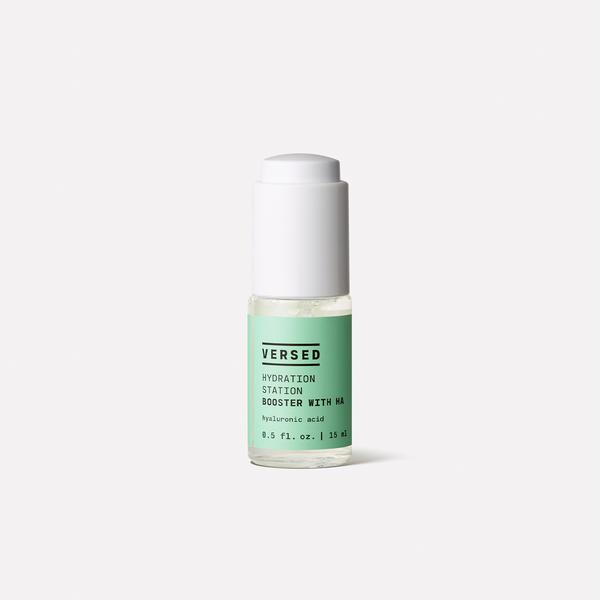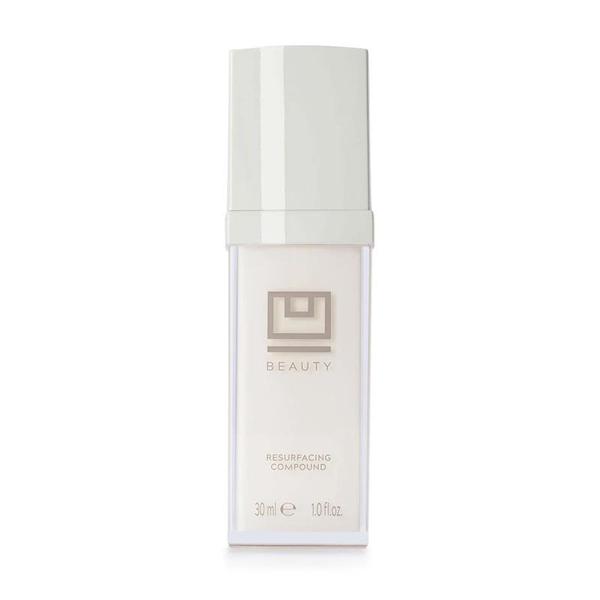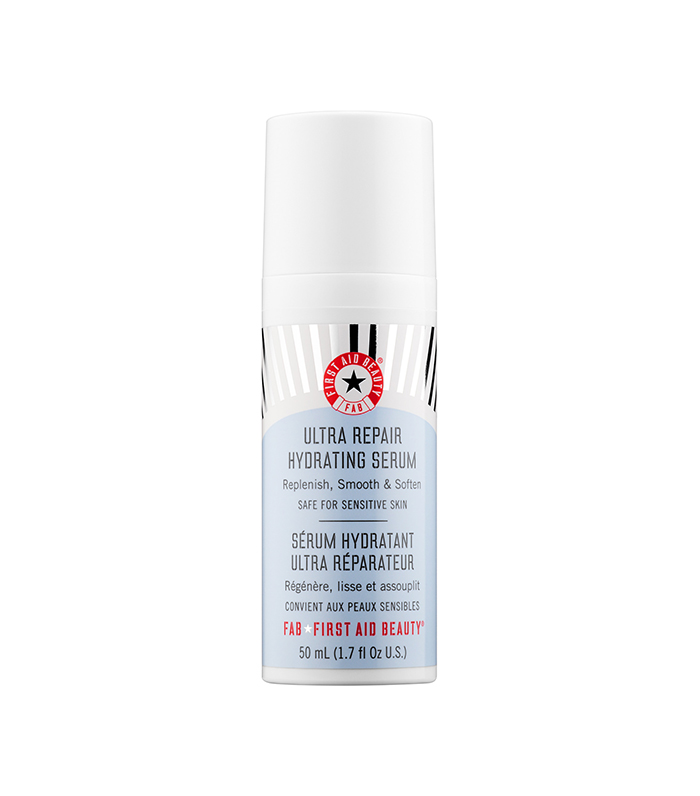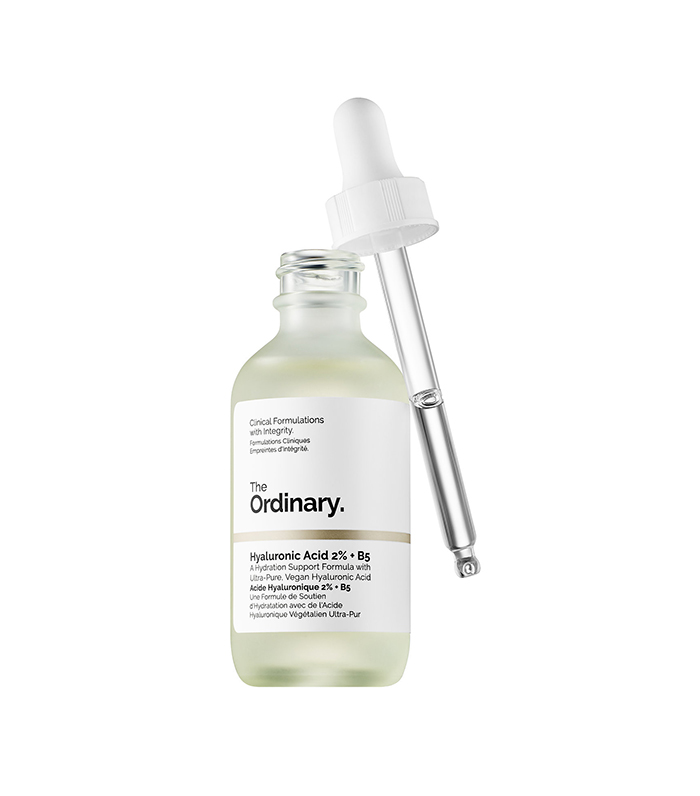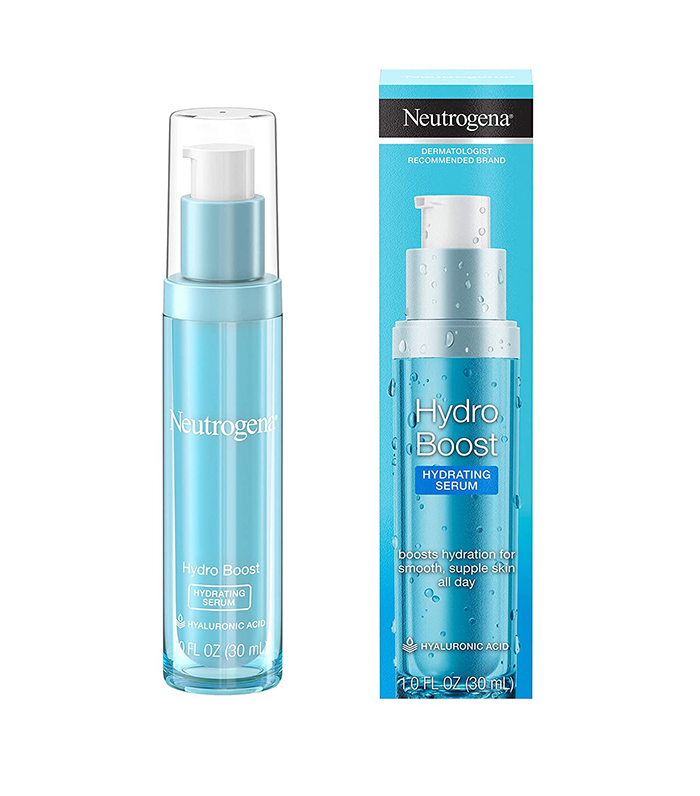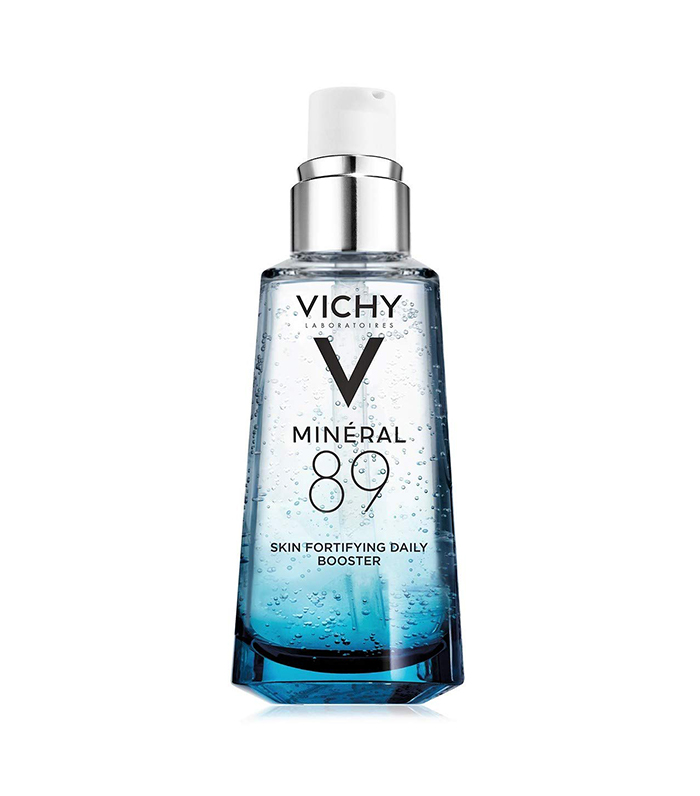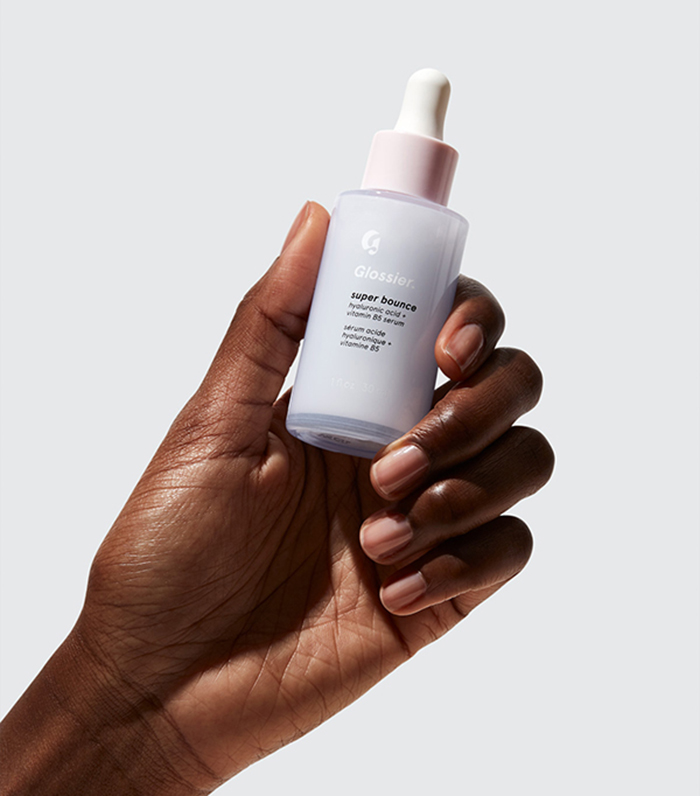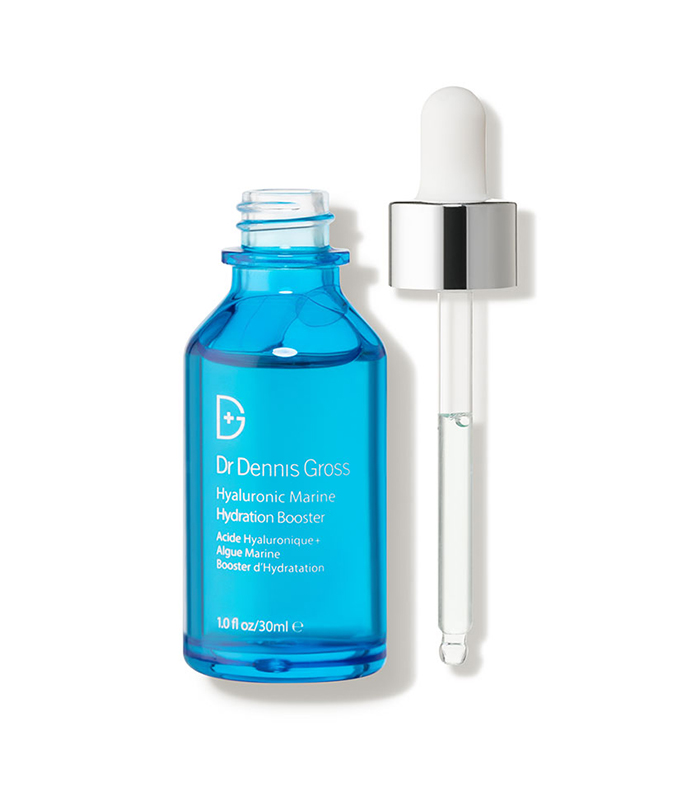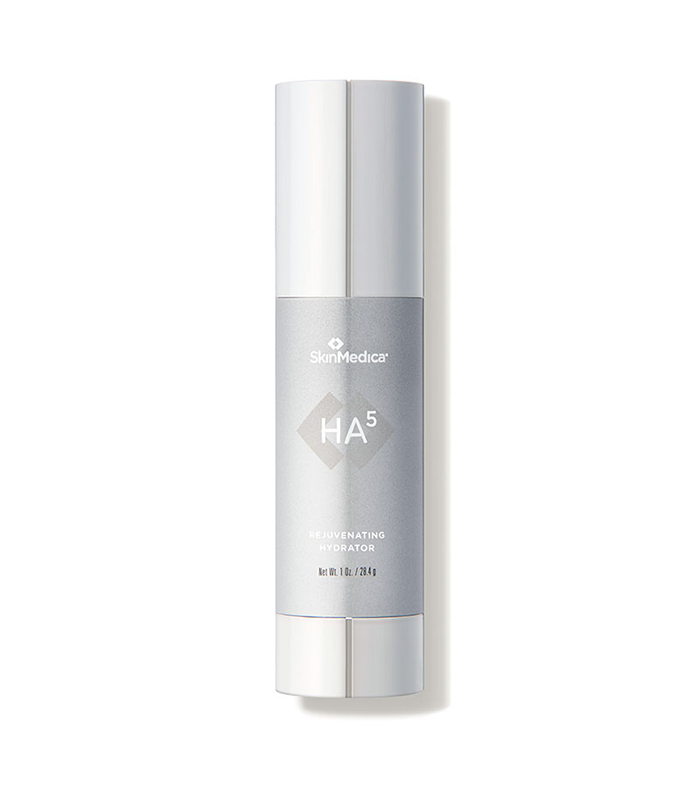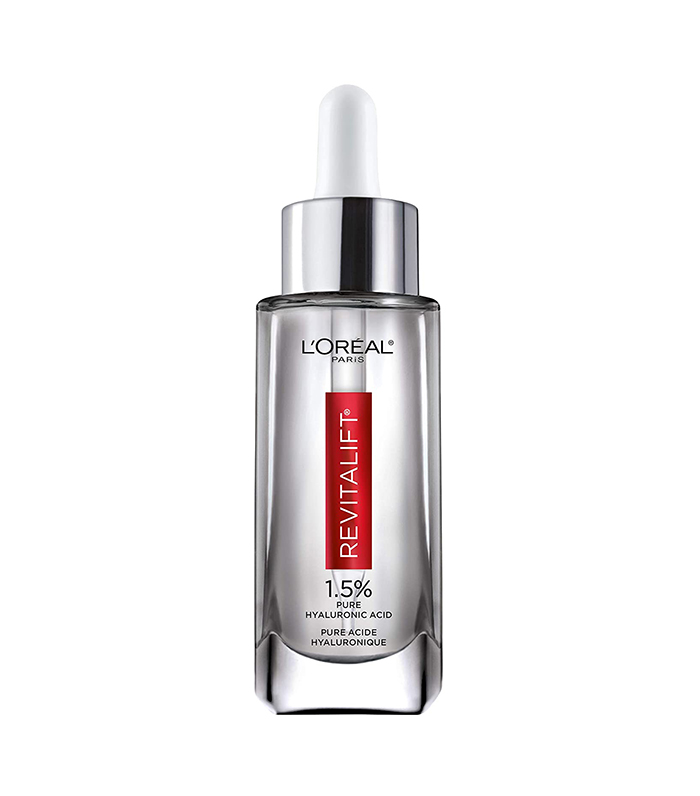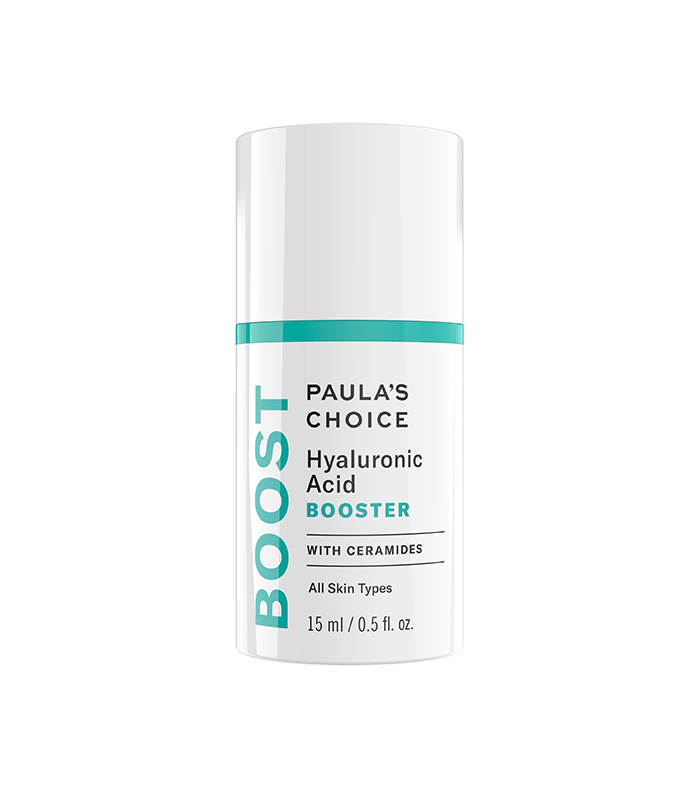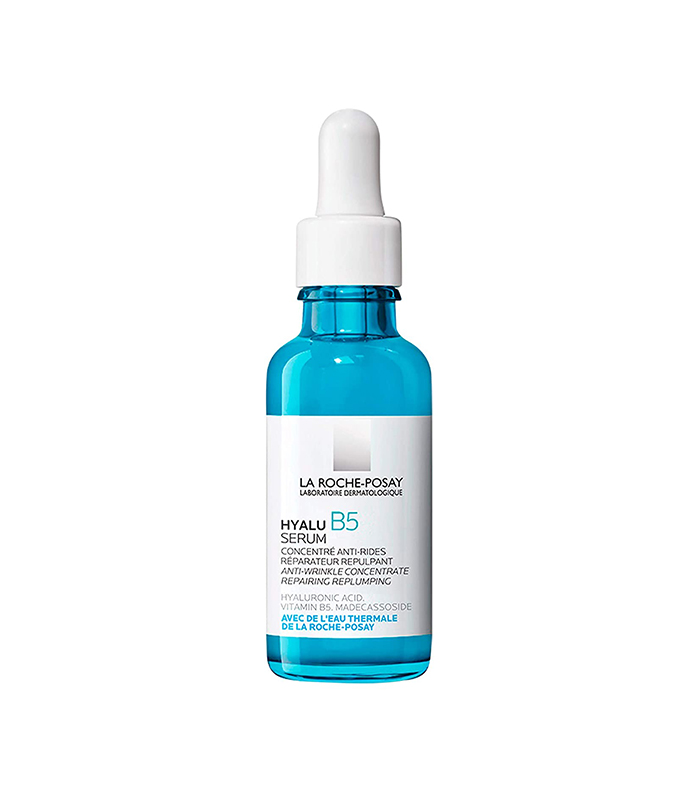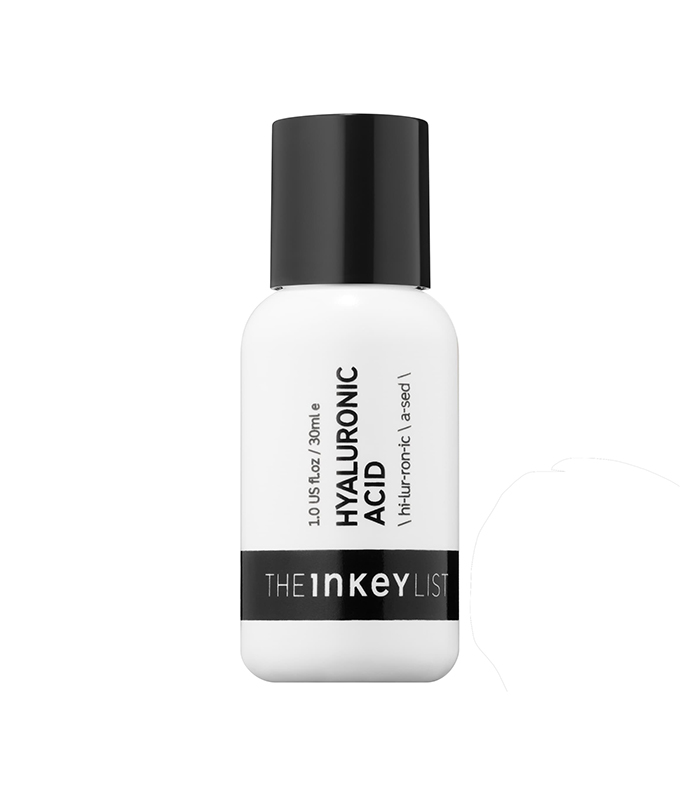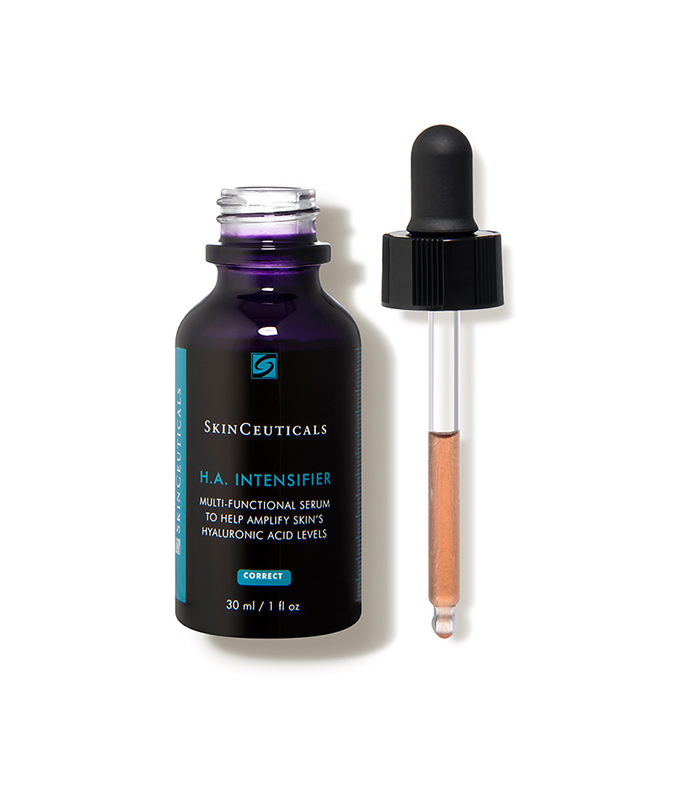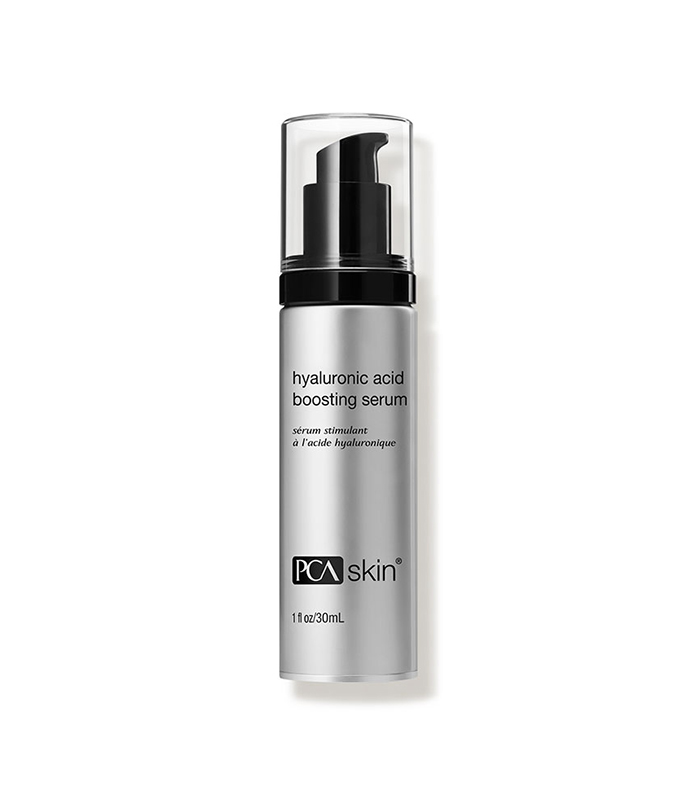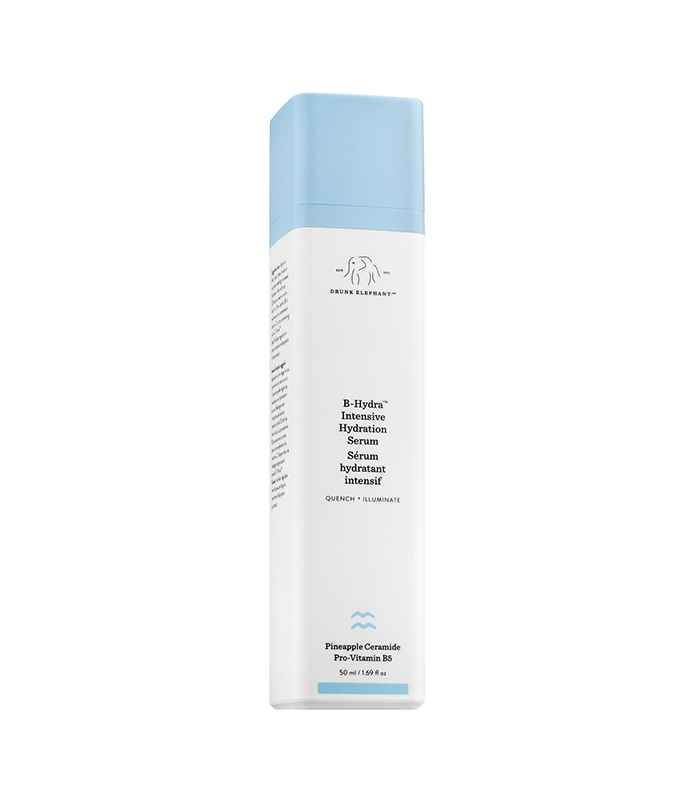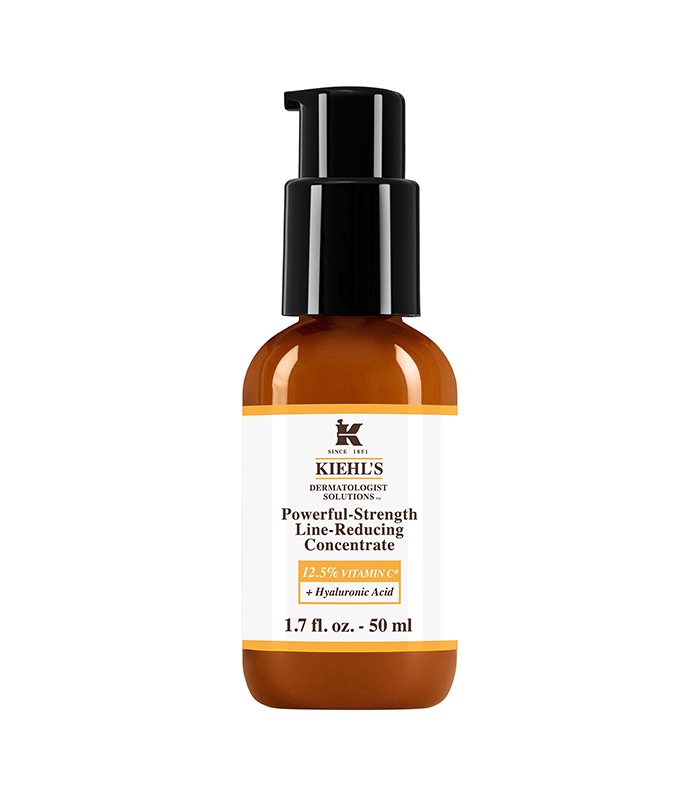4 Myths You Should Know About This Beloved Skincare Ingredient
Even if you're not 100% well-versed in the skincare world, you've probably heard the term hyaluronic acid (HA). Maybe you've seen Eva Longoria pronounce it in commercials. You might have friends who swear by HA products. You could have also read some articles about it. In short, the term has been a beauty buzzword for a couple of years now in the skincare space, with some of its purported benefits being plumping, hydrating, and reducing the appearance of wrinkles.
With many people referring to HA as a holy-grail ingredient of sorts, it seems to be in every single beauty product and in some cases in supplement form. But is it really that great, or is it too good to be true? We investigated.
What Is Hyaluronic Acid?

Hyaluronic acid naturally occurs in the skin, so it's important to know the difference between that type of HA and its topical form. "Hyaluronic acid is a glycosaminoglycan, which is a polysaccharide, or a sugar that is naturally occurring in the skin," explains Robyn Gmyrek, MD, a board-certified dermatologist at Park View Laser Dermatology. "It is an essential component in our extracellular skin matrix, which is the cushioning in which our skin cells rest. HA plays an important role in retaining moisture in the body, as one molecule alone can hold up to 1000 times its own weight in water. Hyaluronic acid is found throughout most tissues in the body, with the greatest concentration in the skin. Hyaluronic acid provides support to the structural proteins of the skin, collagen, and elastin, allowing them to impart mechanical strength and elasticity to keep the skin firm and flexible." In short, HA helps your skin appear supple and youthful and reduces wrinkles.
But as we get older, the topmost layer of skin (the epidermis) loses HA, but the deeper layer (the dermis) is able to retain its natural HA. "The natural decline in hyaluronic acid as we age is exacerbated by external factors like pollution and ultraviolet radiation, leading to wrinkles, fine lines, dry skin, and skin laxity," adds Gmyrek.
It's also important to note that HA is a humectant moisturizer, meaning it doesn't contain moisturizing ingredients in its molecules. Instead, it pulls water from the environment or from deep within the skin.

Gmyrek highlighted some of the benefits of the HA that occurs naturally:
It enhances the formation of new blood vessels. It helps transport essential nutrients to skin cells from the bloodstream, providing an ideal environment for tissue repair, healing, and growth.
It modulates the inflammatory and immune response to ultraviolet radiation. This reduces free radicals that lead to DNA damage.
It has antioxidant properties. These protect against free radicals caused by pollutants, ultraviolet light, and other environmental factors.
It stimulates specialized skin cells called fibroblasts. This will promote the production of new collagen.
So What's the Deal With Topical Hyaluronic Acid?

When you think of hyaluronic acid, the first thing that comes to mind might be the topical kind. You might not have even known that hyaluronic acid naturally occurs in the body. "Almost everyone can benefit from incorporating hyaluronic acid into their skincare routines and treatments," explains board-certified dermatologist Joyce Imahiyerobo-Ip, MD, FAAD, owner of Vibrant Dermatology and Skin Bar MD in the greater Boston area. "Topical application of hyaluronic acid to the skin can help if you are experiencing excessive dryness or inflammation on your skin. Therefore, it is a product that may be beneficial to those with sensitive skin. In addition, since hyaluronic acid helps to retain skin moisture, topical application of HA can help the skin appear more youthful and temporarily plump fine lines and wrinkles. When we inject hyaluronic acid into the skin, it will improve the look of deep lines and wrinkles."
So for the most part, topical HA can benefit the skin, but there are a lot of caveats and things to keep in mind, such as the type of product and your own skin's reaction to HA.
Gmyrek outlined some of the things you need to know about topical HA:
Hyaluronic acid's size matters. "Hyaluronic acid itself, when applied topically, is too large a molecule (3000 nanometers) to pass through the skin where intercellular space is only 15 to 50 nanometers, so it cannot be absorbed by or penetrate the skin," she explains. "So HA needs to be made smaller to be absorbed. This can be done by a process called hydrolyzing, which uses water to break down the HA, resulting in 'hydrolyzed hyaluronic acid' commonly listed as an ingredient in serums and moisturizers."
There's also sodium hyaluronate. "Another more common method is to extract a sodium salt from the HA to get sodium hyaluronate. It has a lower molecular weight than HA and hydrolyzed HA, so it's more easily absorbed. It is also more stable and less likely to oxidize," she says.
There are conflicting studies. The benefits of HA aren't proven across the board. Gmyrek says that some studies show that smaller-molecular-weight HA absorbs deeply to fully hydrate the dermis and plump our fine lines and wrinkles, but others find that it's not absorbed well and actually draws water out of the skin and causes dryness.

The hydrating effects might be temporary. Larger-molecular-weight HA sits on the surface of skin cells, and there are some claims that it attracts moisture from the atmosphere to keep the skin hydrated. "Others report that there is not enough moisture in the air so that these products sitting on the surface actually draw moisture out of the deeper layers of your skin, leading to dryness," Gmyrek says. "This will temporarily increase the water content on the surface of the skin, making it appear hydrated and smooth, but then the moisture on the surface evaporates, causing dehydration of the skin—and perhaps this motivates you to apply more hyaluronic acid, compounding the effect."
Myths About Hyaluronic Acid

There are a lot of other myths and misconceptions about HA. Many of us probably have a vague idea about it. I just always thought it was a regular moisturizer and didn't really know that it's a humectant that pulls moisture instead. So I asked the experts about some other common HA myths to debunk, and here's what they said:
MYTH: Hyaluronic acid is an exfoliant. Since it's an acid, some might assume it's an exfoliant. It's not. "It is indeed classified as an acid, but it's not an exfoliant like salicylic acid or glycolic acid. It does not exfoliate the skin but is a plumper, humectant, and hydrator," Gmyrek says.
MYTH: Topical HA penetrates deep into the skin. "HA is a big molecule, usually not deep enough to penetrate past the epidermis to get into the dermis to have its natural effect," explains Jenny Liu, MD, a board-certified dermatologist based in Minneapolis. "Most HAs just sit on top of skin at best but don't help to keep skin hydrated, which will temporarily improve the appearance of fine lines. There are small-molecular-weight HAs that can penetrate deeper, but we need more studies to truly understand their effects. We do know in laboratory studies, HAs can stimulate collagen, but how to deliver that in skincare is to be determined."
MYTH: Topical HA can treat deep lines and wrinkles. "A common myth about hyaluronic acid is that topical application to the skin will correct deep lines and wrinkles," says Imahiyerobo-Ip. "That is incorrect. While topical hyaluronic acid will improve the texture of the skin and make it appear dewy, topical HA cannot treat deep wrinkles. If you have deep lines and wrinkles, that can only be improved by injection of hyaluronic acid filler into the skin."
MYTH: Topically applied HA is equivalent to hyaluronic acid filler injections. "It is not! HA has to be broken down into smaller pieces to be absorbed into the skin, and if it sits on the surface, it can actually end up drawing moisture from the deeper levels of your skin, ultimately leading to dry skin as the moisture gets absorbed into the air," Gmyrek explains. "When we inject HA, there is no skin-barrier issue. The needles penetrate the skin and place the HA deep in the skin, and the HA seeks to hold on to water from your body. It draws water from the inside and plumps and hydrates. These products last between six and 24 months."
So What's the Verdict?

Like many skincare products, whether you use it or not ultimately depends on personal preference and how your skin reacts to it. "Topically applied HA is not a miracle, anti-aging ingredient," Gmyrek says. "It has the potential to plump, hydrate, as well as stimulate collagen and elastic tissue. The results may vary from product to product. There are no clear guidelines that I can give regarding products, and it will be a bit of trial and error using these products from person to person."
When trying a new product, you should pay attention to your skin. If you are experiencing side effects like dryness, redness, or irritation, stop using it. And Gmyrek says you should opt for a product with low-molecular-weight HA (aka short-chain HA). Keep in mind that even more research needs to be done on HA, too.
How to Shop for Hyaluronic Acid
Again, products with low-molecular-weight HA are your best bets. They may be listed as sodium hyaluronate or small-chain HA. Liu personally recommends HA serums. "In general, HA is pretty inert, doesn't cause irritation, and is usually formulated with other hydrating ingredients. Just be wary of products that claim to increase collagen production, as most are false," she adds.
This should be a common practice when you're shopping for pretty much anything overall, but make sure you do your research and pay attention to the labels. "For hyaluronic acid to be effective, it needs to be present in sufficient enough quantities," explains Imahiyerobo-Ip. "Learning to read skincare labels is an important part of finding the right hyaluronic acid product. You want to look for products that contain hyaluronic acid, hyaluronate, or hyaluronan. You also want to see that these ingredients appear toward the top of the ingredient list, as that indicates that they are present in sufficient amounts to positively impact the skin. If it appears at the bottom of the ingredient list, then the HA is present in very small amounts."
How to Apply Hyaluronic Acid
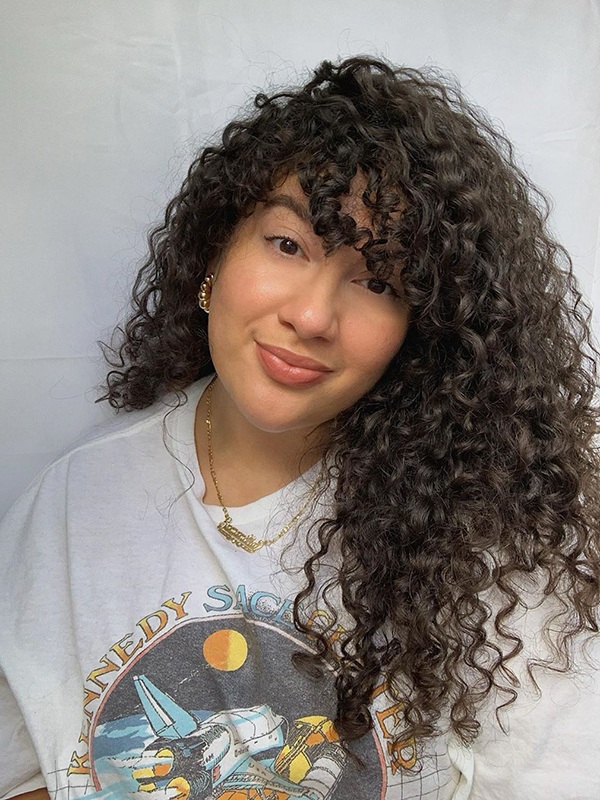
All of our experts say you can use the product twice a day if you don't notice any irritation and are seeing good results. "It should be applied to your skin after any prescription products or serums and before any moisturizing creams," recommends Imahiyerobo-Ip. "You can also apply HA to your skin once to twice a day as part of any anti-aging routine. During the warmer months, you may find that you can use hyaluronic acid alone without the need for additional moisturizer. In the winter months, I do suggest using it along with a moisturizer."
Gmyrek adds that adding the moisturizer on top will seal in and provide moisture for the HA to absorb, which is especially helpful if the air around you is dry.
Hyaluronic Acid Products to Try
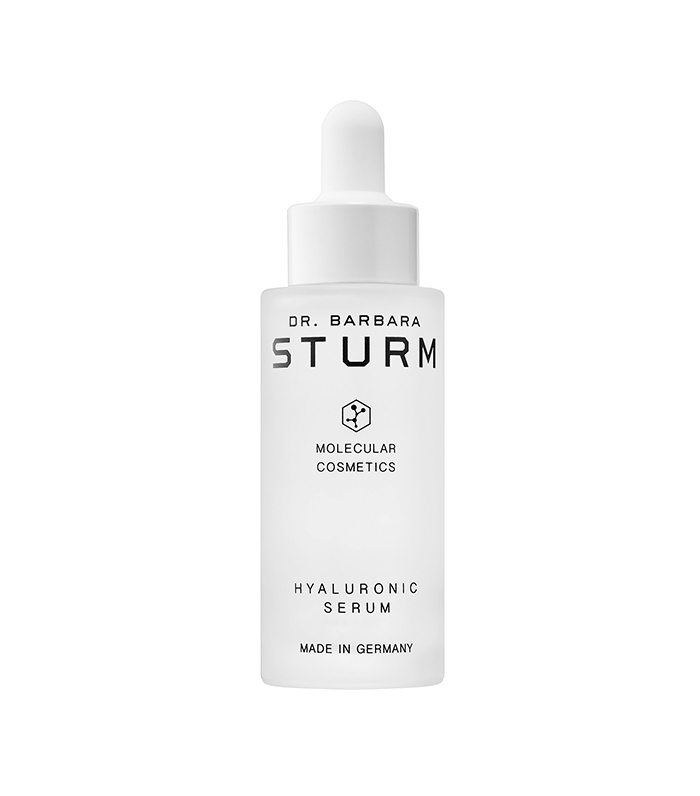
This serum is by far the biggest splurge on this list. The formula contains both low- and high-molecular-weight HA, plus the antioxidant purslane to promote hydration, plump skin, and reduce any signs of irritation.
Next up, these five common moisturizer ingredients are toxic—here's what to buy instead.
Sarah is lifestyle writer and editor with over 10 years of experience covering health and wellness, interior design, food, beauty, and tech. Born and raised in Los Angeles, she attended New York University and lived in New York for 12 years before returning to L.A. in 2019. In addition to her work at Who What Wear, she held editor roles at Apartment Therapy, Real Simple, House Beautiful, Elle Decor, and The Bump (sister site of The Knot). She has a passion for health and wellness, but she especially loves writing about mental health. Her self-care routine consists of five things: a good workout, “me” time on the regular, an intriguing book/podcast/playlist to unwind after a long day, naps, and decorating her home.
